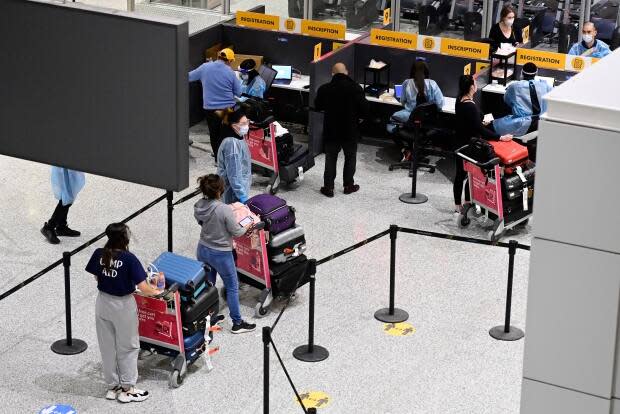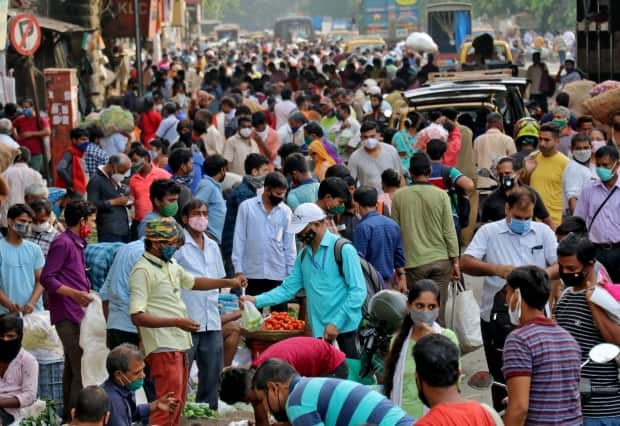B1617 variant has been detected in Mauricie–Centre-du-Québec region

A first case of B1617, a COVID-19 variant first detected in India, has been identified in Quebec's Mauricie–Centre-du-Québec region, according to public health authorities.
This is thought to be the first case of this type of variant detected in Quebec. The Mauricie region is between Montreal and Quebec City.
The infected person was already in isolation during screening because another person in their home had tested positive, says the region's health authority, the CIUSSS de Mauricie-et-du-Centre-du-Québec.
The patient received a first vaccine dose in January — at that time, only Pfizer and Moderna vaccines were available in Quebec — and then became infected a couple of months later, according to Dr. Gaston De Serres of Quebec's public health institute (INSPQ).
The patient is doing well, the health authority says. The CIUSSS has launched an epidemiological investigation to find the source of the infection.
Dr. Alain Lamarre, an immunologist and virologist with the Institut national de la recherche scientifique (INRS), says the two mutations present in B1617 have been associated with a poorer antibody response.
That means the antibodies developed through a vaccine or a previous COVID-19 infection are less effective at neutralizing the new version of the disease, he said.
"All we know is that it contains mutations — two mutations — and that's why we call it double mutant, which have been associated with a poorer response of antibodies," said Lamarre.
Whether the vaccine failed to protect against the variant or the person had a particularly weak immune system is still unknown, he said.
One case of a vaccinated person getting sick is not enough to determine if B1617 is more resistant to vaccines than other variants, De Serres added.
"This variant is still not on the list of variants of concern. The variants of concern need to have clearly a capacity to evade the immune system or have higher transmissibility or causing more serious disease," he said.
De Serres said the variant is still under surveillance but it hasn't been established to be more transmissible, more virulent, or able to evade the immune system.
Lamarre agrees this variant does not appear to be more easily transmitted or more dangerous than the variant first detected in the United Kingdom. He said viruses tend to mutate as they spread.
"It is a natural property of viruses to generate mutations each time they replicate and the larger the epidemic, the more people will be affected and the more viral replications will be generated," he said.
Whether the new variant made its way to Quebec through travel is still unknown, he said.
Ontario's government says it is pleading with Ottawa to ban travel from India and other hot-spot countries.

Chief Public Health Officer Dr. Theresa Tam says that while travel restriction measures are generally not country-specific, India could be a special case due to a "variant of interest" there that may be fuelling the massive outbreak.
India recorded nearly 300,000 new cases of COVID-19 on Wednesday alone, with 2,000 more deaths linked to the virus. Roughly 50 per cent of detected COVID-19 cases are B1617 there.
The government says 35 flights from India have arrived in Canada in the last two weeks, bringing with them at least one case of COVID-19.
De Serres says it's too early to say if B1617 is to blame for the surge of cases in India and, like Lamarre, he said this variant has been detected elsewhere in Canada, and in 20 other countries around the world, including the United States.
For now, the fact that Canada is able to detect variants is a good thing, according to Montreal Public Health's Dr. David Kaiser. The country's borders are not completely closed, he said, and people are still coming into the country infected with variants.
"When we know a variant is circulating around the world, if we detect it — if we detect one case — it means we have the capacity to intervene," Kaiser said.

